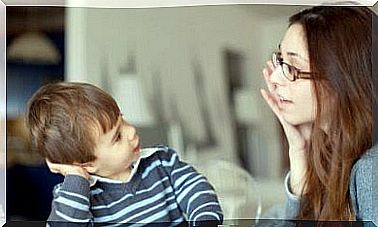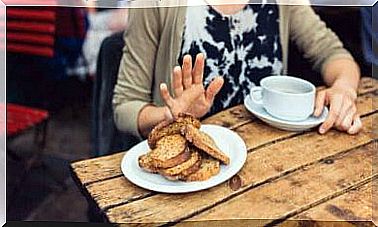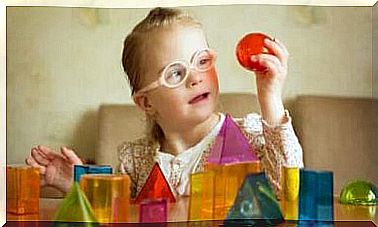Symbolic Thinking In Children: 6 Exercises
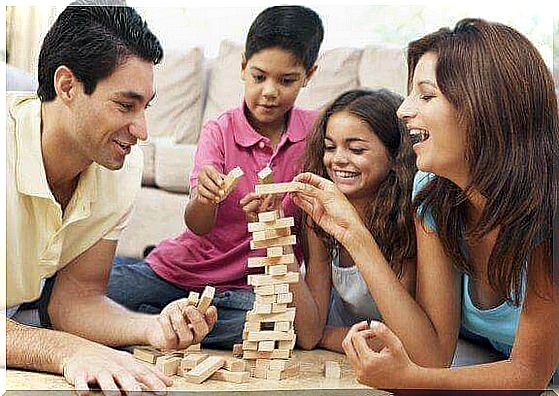
It is important to develop symbolic thinking in order for children to be able to understand basic abstract concepts. These are acquired through language. Children begin to express themselves with symbolic ideas at about 18 months.
A child’s growth is not only measured in physical abilities. The most complex processes to monitor are children’s mental and sensory development. Knowing the most important steps in cognitive development makes it easier to support your children.
The basis for symbolic thinking in children
It is obvious that a child has begun to develop symbolic thinking when it can convey people, things and situations that do not exist in the immediate environment. In short, symbolic thinking is the ability to think in pictures or imagine something. It shows that the child perceives reality through abstract concepts.
How do you identify symbolic thinking in games and communication?
When a child plays with a stick and imagines it as a sword , the child demonstrates the ability to make abstract assumptions about real objects. So when children imagine that they are a superhero or a doctor, they think with the help of symbols.
When children use gestures and sounds to communicate and name things, they make sense of their reality. Later, as children get older and learn to write and draw, they begin to use signs to define the world of the concept.
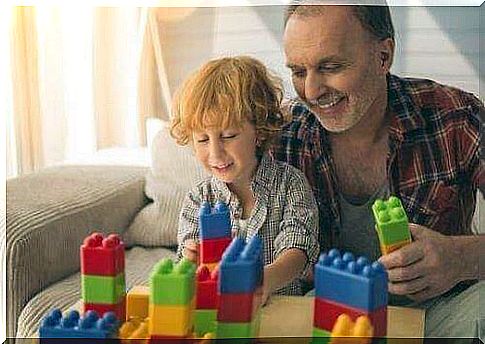
How do you develop symbolic thinking in children?
Role play
Play role-playing games with your children by suggesting that they are the parents and you are the child. Suggest fun scenarios and start seeing how your children imitate the behavior they want to see in you. They will let your imagination run wild and thus create amazing stories that will surprise you. Use costumes, masks and items to make the game more entertaining.
2. Do household chores
Come to games where your children can pretend to be cooks, for example, and help you cook a meal. First give them the amount of ingredients and ask them to count and name them.
In this way, you not only help to develop their symbolic thinking, but they also become more aware that they should participate in household chores.
3. Simple board games
The Babbles Come-home game, Number Ninja or The Great Jungle Race are games that help children understand numerical concepts. Identifying characters, icons and illustrations is also a major step in the construction of symbols.
4. Puzzles and building blocks
To represent objects through building blocks or construct something from small pieces is to create based on mental images, which of course also requires mental images. In addition, one must imitate divs that do not exist in the surrounding reality, and it thus promotes symbolic thinking.
5. “I see…”
This is a great game for young children, either at home or outdoors. It consists of formulating a simple descriptive question or statement, for example: “I see something red.” Your child should indicate where there is something with these characteristics. In addition to practicing the child’s perception of objects and backgrounds , you also stimulate his or her cognitive abilities.
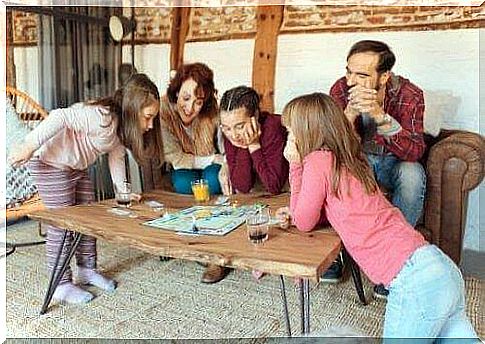
6. Stories, riddles and guessing games
Word play is good for children’s development of symbolic thinking. Words make children think of pictures, objects and stories. When children let their imagination flow, they revisit places they have created themselves. They explore places that personify and represent their vision of reality. Word games can also motivate your child to start reading and writing.
In conclusion, you will notice big steps forward when you start using these simple games and games in the family’s everyday life. Children develop different abilities at the same time, both physically and mentally, and you will see that your children’s knowledge and communication skills will grow stronger with a little help from you.

